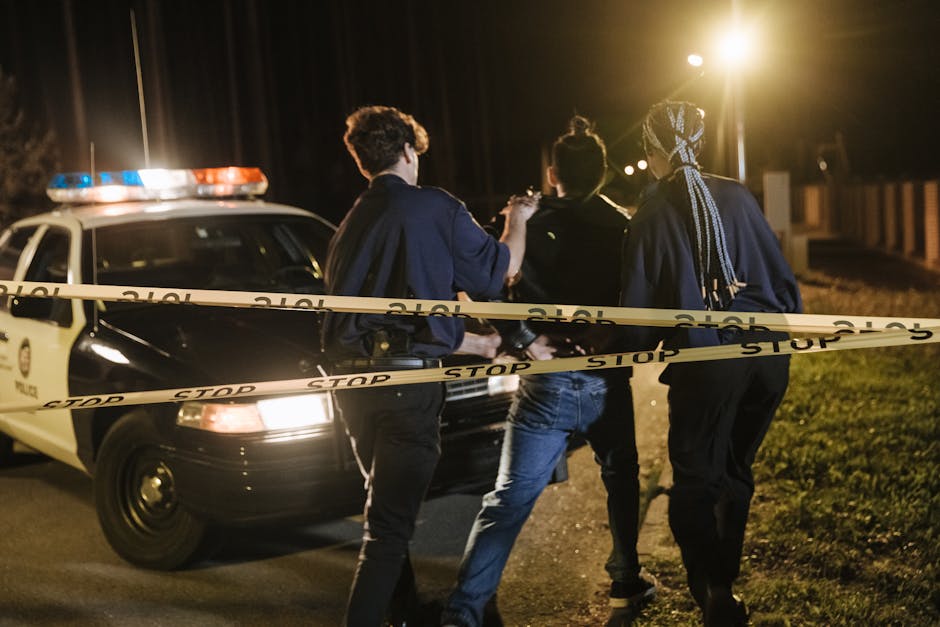Congressional Oversight Clash at New Jersey ICE Facility Sparks Debate Over Access and Accountability
Congressional Oversight Clash at New Jersey ICE Facility Sparks Debate Over Access and Accountability

Tensions flared recently between members of Congress and federal law enforcement officials following a visit to the Delaney Hall ICE detention center in Newark, New Jersey. The incident, which involved the arrest of Newark Mayor Ras Baraka alongside three New Jersey Representatives – LaMonica McIver, Bonnie Watson Coleman, and Robert Menendez Jr. – has ignited a broader debate concerning congressional oversight of ICE facilities”>congressional oversight of ICE facilities and the balance between executive authority and legislative accountability.
The lawmakers claim their visit was a legitimate exercise of congressional oversight, intended to inspect the facility’s conditions and speak with detainees. They assert that ICE agents escalated the situation unnecessarily, leading to the mayor’s arrest for trespassing. Their unannounced arrival, however, directly contradicted existing guidelines, which require 24-hour notice for congressional staff and 72 hours for members of Congress themselves. The representatives maintain they were conducting an inspection rather than a scheduled tour, thus justifying their unannounced arrival.
In response to the incident, Department of Homeland Security (DHS) Secretary Kristi Noem characterized the lawmakers’ actions as a “political stunt,” rather than legitimate oversight. However, acting ICE director Todd Lyons acknowledged the right of Congress to visit detention facilities, even unannounced, albeit with proper identification and security screening. This divergence in statements highlights the internal conflict within the DHS regarding its approach to congressional oversight.
Following the clash, DHS issued new guidelines restricting lawmakers’ access to ICE facilities. These include requirements for advance notice (72 hours for lawmakers, 24 hours for staff), providing lists of detainees they wish to speak with (or allowing ICE 48 hours to create a sign-up list), obtaining signed privacy releases from detainees, and prohibiting filming or photography within the facilities. Democratic Representative Bennie Thompson criticized these restrictions as unprecedented and an affront to the Constitution and federal law.
Delaney Hall itself, a 1,000-bed facility opened this year under a $1 billion, 15-year deal between ICE and the GEO Group, is currently operating at only 15% capacity. While ICE officials claim the facility houses individuals with criminal convictions or pending charges, Mayor Baraka has raised concerns about the facility’s permitting and inspection processes, alleging a lack of proper oversight and profiteering from incarceration. The GEO Group denies these allegations.
The incident at Delaney Hall also underscores the broader context of increased immigration enforcement under the current administration. Plans are underway to significantly increase funding for ICE, aiming for 1 million annual deportations and a 100,000-person detention capacity. This expansion, coupled with the ongoing debate over due process for detained migrants, further complicates the already tense relationship between Congress and the executive branch regarding immigration policy.
Analysis: The clash at Delaney Hall highlights a significant power struggle between the legislative and executive branches concerning immigration enforcement. The differing statements from Secretary Noem and Director Lyons reveal internal divisions within the DHS regarding its approach to congressional oversight. The implementation of stricter visitation guidelines, coupled with the expansion of ICE detention capacity and the ongoing debate regarding due process, suggests a potential trend toward increased executive control over immigration enforcement and a diminishing role for congressional oversight. The controversy surrounding the for-profit nature of Delaney Hall and allegations of inadequate oversight further complicate the issue, raising questions about transparency and accountability within the immigration detention system.
The future implications are significant. The new restrictions on congressional access could severely limit lawmakers’ ability to monitor ICE facilities and ensure humane treatment of detainees. This could lead to further erosion of public trust and increase calls for greater transparency and accountability. Furthermore, the ongoing debate regarding due process and the expansion of detention capacity raise serious concerns about the potential for human rights abuses and the need for stronger oversight mechanisms. The incident serves as a stark reminder of the need for a clear and well-defined framework governing congressional oversight of executive agencies, particularly in sensitive areas like immigration enforcement.
Conclusion: The confrontation at Delaney Hall is more than just a single incident; it represents a broader struggle over power, transparency, and accountability within the immigration enforcement system. The outcome of this conflict will have significant implications for the future of congressional oversight, the treatment of detained migrants, and the overall direction of immigration policy in the United States.
Disclaimer: This content is aggregated from public sources online. Please verify information independently. If you believe your rights have been infringed, contact us for removal.